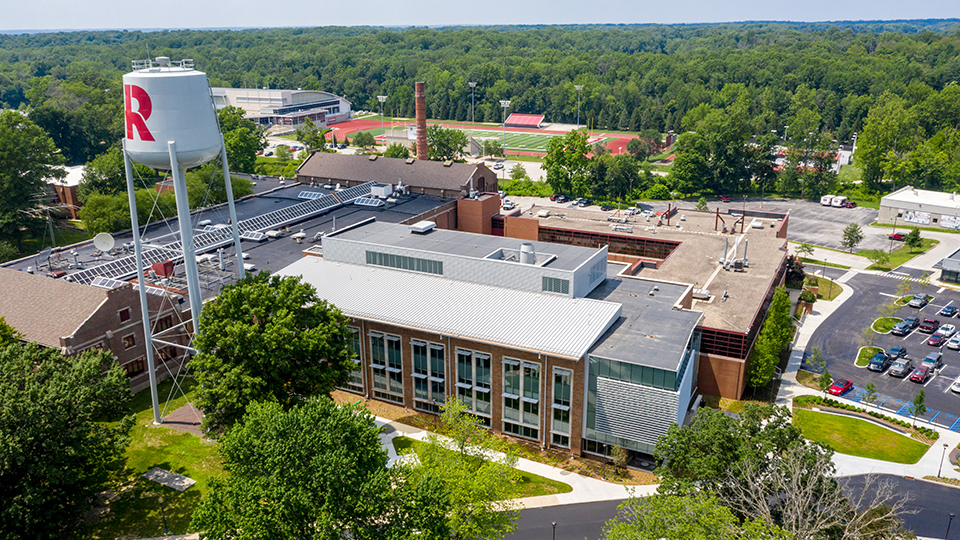 When one works in college counseling for as long as I have, it’s hard not to pick up on patterns – most notably patterns in the colleges that are most attractive to the vast majority of students and parents.
When one works in college counseling for as long as I have, it’s hard not to pick up on patterns – most notably patterns in the colleges that are most attractive to the vast majority of students and parents.
Many of the students and parents with whom I work every year are mesmerized by some or all of the following:
- Ivy League colleges;
- The top 50 colleges within U.S. News & World Report’s Best National University Rankings;
- The top 25 colleges within U.S. News & World Report’s National Liberal Arts Colleges Rankings; and
- Large state universities with strong reputations for academics, sports, and/or being relatively affordable.
While I respect and appreciate the value students and parents place on these characteristics, and in many cases my students would be very wise to populate their college lists with colleges that meet one or more of the criteria listed above, doing so doesn’t leave a lot of room for some truly exceptional colleges that many students should also be strongly considering.
As a result, in recent years, I’ve taken note of which colleges I find myself most vociferously encouraging students and parents to research in order to augment their college lists with smart and savvy but below-their-radar options. And over the years, these colleges have changed as the world around us has changed.
While a lot has changed over the years (most popular majors, in demand careers, the economy as a whole, etc.), the three guiding principles of return on investment (ROI), academic and preprofessional fit, and values alignment have informed and will continue to inform my professional practice when recommending colleges to families.
Return on Investment
ROI serves as the foundational reason why I recommend certain colleges far more than others. For an edifying and enjoyable experience alone, one should read a good book or go on vacation; college is first and foremost an investment.
Academic and Preprofessional Fit
Yet, a student’s specific academic aptitudes/interests and professional goals should and do often come in tied for first with ROI or at least a close second when I consider which colleges I recommend to students and parents.
Values Alignment
Rounding out the top three characteristics that I consider quite important when matching students with right fit colleges: the student should be excited to engage with students, professors, and others within his or her college community. For all the talk of diversity in the world of college admissions, at the end of the day, there does need to be something that binds a college’s students and staff together, and this is where values alignment beyond academic and career interests comes into play.
Which brings us to the five colleges that, in 2023, I believe are the most frequently unconsidered without prompting and therefore ridiculously underrated by students and parents attempting to cobble together smart and savvy college lists. Without further ado, let’s begin our countdown, which will allow me to explain why these are the colleges that I’m most frequently promoting with my families at present.

Santa Clara University’s campus in Santa Clara, California, USA.
5. Santa Clara University
Santa Clara, California
Santa Clara University (SCU), which I’ve proudly plugged here before, weighs in at a respectable #55 in US News’ Best National University Rankings; yet, in my estimation it’s still severely underrated because of what it is and where it is and the fact that its ROI is on average quite excellent.
In a state dominated by big and bureaucratic (UCs, CSUs), hyper-selective (Stanford, USC, UC Berkeley, UCLA), and/or really unimpressive (shall remained unnamed) institutions, Santa Clara University, in California’s famous Silicon Valley, represents a refreshing best of all worlds environment. It’s not too big and not too small, it has extremely well-regarded liberal arts and preprofessionally focused majors, it has a lovely and relatively safe campus, and it’s all nicely packaged in Jesuit wrapping. At a time when career-oriented majors like engineering, computer science, business, and anything to do with innovation are in high demand, it’s nice to find all of the above and more on one campus fortified by time-tested values.
Some cool Santa Clara University traditions that underscore the institution’s values include:
The Bronco Statue: The Bronco statue is a prominent landmark on campus, located near the entrance to the Leavey Center. Rubbing the Bronco’s nose is considered a tradition for good luck before exams or other significant events.
Mass of the Holy Spirit: At the beginning of each academic year, Santa Clara University holds the Mass of the Holy Spirit, a tradition that dates back to the university’s founding in 1851. This Mass is a symbolic way of invoking the guidance and blessings of the Holy Spirit for the upcoming year.
Golden Circle: The Golden Circle is a tradition that honors alumni who graduated 50 or more years ago. During commencement, these alumni lead the graduating class into the ceremony, passing on the legacy of SCU to the next generation.
Midnight Breakfast: As finals week approaches, the university hosts Midnight Breakfast, where faculty and staff serve breakfast to students late at night in the campus dining hall. It’s a way to provide some stress relief and support during the exam period.
Red Rally: Red Rally is an annual event that takes place during Welcome Week, celebrating the start of the new academic year. Students, faculty, and staff come together for a night of music, games, and performances.
24-Hour Play Festival: The 24-Hour Play Festival is a unique theater event where students write, direct, and perform short plays within a 24-hour time frame. It showcases the creativity and talent of SCU’s theater community.
Tunnel of Love: Before Valentine’s Day, the campus walkway between the Mission Church and the library is adorned with hearts and decorations, creating a “Tunnel of Love.” Students and visitors often walk through this festive display.
Chimes Tower: The Chimes Tower, located at the center of campus, plays the SCU fight song and other tunes at various times throughout the day. It’s a familiar and cherished sound on campus.
Campus-Wide Day of Service: Santa Clara University emphasizes a commitment to service and social justice. The university organizes a campus-wide Day of Service, where students, faculty, and staff engage in various community service activities in the local area.

Santa Clara University from above.
Overall, I’m consistently and particularly impressed by Santa Clara University’s:
Jesuit Tradition: One of the key aspects that sets Santa Clara University apart is its Jesuit tradition. As a Jesuit institution, SCU emphasizes a well-rounded education that incorporates both academic excellence and a commitment to social justice and service. The university places a strong emphasis on ethics, moral development, and the formation of responsible and compassionate leaders.
Academic Breadth and Depth: Considering it only has roughly 6,000 undergraduates, Santa Clara University has quite the diversity of majors taught by high quality faculty. Popular majors include Business Administration (including concentrations like Finance, Marketing, and Entrepreneurship), Engineering (including disciplines like Computer Engineering, Mechanical Engineering, and Electrical Engineering), Psychology, Biology, Communication, Economics, Political Science, Computer Science, Finance, and Applied Mathematics
Small Class Sizes and Personalized Attention: SCU’s relatively small student population allows for smaller class sizes and more personalized attention from professors. This creates a conducive environment for student-faculty interaction, fostering mentorship and individualized learning experiences.
Silicon Valley Location: The university’s prime location in the heart of Silicon Valley provides unique opportunities for students. Santa Clara University benefits from its proximity to numerous tech companies, startups, and innovative organizations, offering students access to internships, networking events, and potential job opportunities.
Commitment to Social Justice: Santa Clara University’s commitment to social justice aligns with its Jesuit values. The university encourages students to engage in service-learning and community involvement to address real-world issues and make a positive impact on society.
Diverse Campus Community: SCU prides itself on maintaining a diverse and inclusive campus community. Students from various backgrounds and cultures come together, enriching the overall learning experience and fostering an environment of understanding and acceptance.
Extracurricular Opportunities: SCU offers a wide range of extracurricular activities, clubs, and organizations to cater to diverse interests. Whether it’s sports, arts, cultural clubs, or academic organizations, students have ample opportunities to get involved and explore their passions beyond the classroom.
High Employment Rates: Santa Clara University has boasted high post-graduation employment rates for its graduates. A significant percentage of students secure job offers or pursue further education within a few months of completing their undergraduate degrees.
Competitive Starting Salaries: Graduates from Santa Clara University often receive competitive starting salaries compared to national averages. The university’s location in Silicon Valley, with its thriving tech industry and other lucrative sectors, contributes to the higher earning potential for many graduates.
Strong Alumni Network: The university boasts a robust and supportive alumni network, which can be instrumental in helping undergraduates with career guidance, job opportunities, and networking connections. SCU’s alumni network is known for its support and networking opportunities. Many graduates find professional success with the help of the connections they make through this well-established network.
Internship Opportunities: Santa Clara University’s proximity to Silicon Valley provides access to a plethora of internship opportunities in various industries. These internships can often lead to job offers and provide valuable work experience.
Engaged Career Services: The university’s dedicated career services office works closely with students, providing guidance, resources, and assistance in securing internships and job opportunities. This support can significantly impact post-graduation employment outcomes.
Graduates in High-Demand Fields: SCU offers programs in fields that are in high demand in the job market, such as engineering, business, computer science, and other STEM-related disciplines. Graduates in these areas tend to have strong career prospects.
ROI / Payscale Data: College Salary Report Performance: #8 | College ROI Rank: #36
28% of degrees are awarded in STEM. The medium salary from alumni with zero to five years of experience is nearly $76,000 and the medium pay for alumni with ten or more years of experience is nearly $155,000.
Learn more about Santa Clara University here, and visit its undergraduate admissions office here.

Students and a fountain at Santa Clara University.
—

Rose-Hulman Institute of Technology’s campus in Terre Haute, Indiana, USA.
4. Rose-Hulman Institute of Technology
Terre Haute, Indiana
Okay, Terre Haute, Indiana is isolated, but it’s only an hour and fifteen minutes from Indianapolis and two and a half hours from St. Louis by car. If you are not interested in STEM, forget about it; however, if you are interested in STEM, read on.
For some rankings-focused students and parents, the institution doesn’t even exist (ha!) because it’s not included in the main rankings provided by U.S. News & World Report. Yet, if you dig a little deeper you will find that it is ranked #1 in the U.S. News rankings for best undergraduate engineering programs at institutions that don’t offer doctorate degrees. It beats out better known Harvey Mudd College, the US service academies, Bucknell, and Cooper Union in this regard. Pretty impressive if you ask me.
Getting back to location: Rose-Hulman is near the Wabash River and surrounded by lush landscapes and rural areas, the area generally feels youthful and optimistic. With a significant student population, Terre Haute has a college town vibe, especially during the academic year. This brings a mix of cultural events, restaurants, cafes, and activities catering to students and young adults. Terre Haute boasts a variety of historic architecture, reflecting its past as a manufacturing and railroad hub in the late 19th and early 20th centuries. Some neighborhoods feature beautiful historic homes and buildings. Considering the city is home to only 60,000 people, it certainly punches above its weight in terms of the range of cultural attractions, including museums, galleries, theaters, and music venues that it offers residents and visitors alike. Community events and festivals are held throughout the year, which add to the city’s cultural scene.
Meanwhile, for nature enthusiasts, Terre Haute offers several parks and outdoor recreational areas. Residents and visitors can enjoy hiking, picnicking, and exploring nature trails. Rose-Hulman Institute of Technology’s isolation is a huge positive in terms of costs. Terre Haute is known for its relatively affordable cost of living, making it an attractive option for students, young professionals, and families. Best of all, Terre Haute is known for its friendly and welcoming atmosphere. The city’s residents are generally approachable and willing to engage with newcomers.
Some cool Rose-Hulman Institute of Technology traditions that underscore the institution’s values include:
Munchie Madness: Munchie Madness is an annual late-night event where students can take a break from their studies and enjoy free snacks, food, and drinks. It typically takes place during midterms or finals week, providing a much-needed break and some stress relief.
Field Day: Field Day is a long-standing tradition that takes place during the spring semester. It is a day full of friendly competition among students, with various games and activities held on the campus lawn. Field Day fosters camaraderie and team spirit among students.
Freshman Plunge: During Freshman Orientation, incoming students participate in the Freshman Plunge. This tradition involves diving into the campus swimming pool to symbolize the beginning of their college journey at Rose-Hulman.
Spirit Week: Spirit Week is a week-long celebration leading up to Homecoming. Throughout the week, students, faculty, and staff participate in themed dress-up days, games, and other activities to show their school spirit and enthusiasm.
Fight Song Sing-Off: The Fight Song Sing-Off is an annual event where student groups compete to perform the school’s fight song, “Alma Mater” in the most spirited and creative way possible. It’s a fun and entertaining showcase of school pride.
Rose Parade: Each year during Homecoming, the Rose Parade takes place, featuring elaborately decorated floats made by various student organizations. The parade winds through the campus, and it’s a colorful display of creativity and school spirit.
Lighting of the Letters: The letters “RHIT” (Rose-Hulman Institute of Technology) at the front of the campus are illuminated during special occasions and events. The lighting of the letters is often associated with significant accomplishments or celebrations.
Engineering Olympics: The Engineering Olympics is an annual event where engineering students compete in various engineering-themed challenges and games. It’s a fun way for students to showcase their engineering skills and knowledge.
Engineering Fountain: The Engineering Fountain is a favorite gathering spot for students. It’s a place where students celebrate various milestones, such as passing difficult exams or completing challenging projects, by being tossed into the fountain.

Vigo County Courthouse is a courthouse in Terre Haute.
I’m consistently and particularly impressed by Rose-Hulman’s:
Specialized STEM Education: Rose-Hulman is solely dedicated to STEM education, focusing on disciplines such as engineering, computer science, mathematics, and the natural sciences. This specialized focus allows students to immerse themselves deeply in their chosen fields and receive comprehensive, cutting-edge education. Popular majors include: Mechanical Engineering, Computer Science, Electrical Engineering, Civil Engineering, Biomedical Engineering, Chemical Engineering, Computer Engineering, Software Engineering, Industrial Engineering, and Mathematics.
Rigorous Academic Programs: The institute is known for its challenging and rigorous academic programs. Students are pushed to excel in their studies and develop critical problem-solving skills. This prepares them to become well-rounded professionals and leaders in their respective industries.
Small Class Sizes and Personalized Attention: Rose-Hulman’s small student-to-faculty ratio ensures that students receive individualized attention from professors. This fosters a close-knit learning environment, where students can actively engage with faculty, ask questions, and collaborate on research and projects.
Hands-On Learning: The institute emphasizes hands-on learning experiences, giving students the opportunity to work on real-world projects and apply their knowledge in practical ways. This approach enhances their understanding of theoretical concepts and prepares them for real challenges in their careers.
Collaborative Community: Rose-Hulman promotes a collaborative and supportive community among students, faculty, and staff. The inclusive environment encourages teamwork, open discussions, and the exchange of ideas, creating a positive learning atmosphere.
State-of-the-Art Facilities: Rose-Hulman invests in modern and state-of-the-art facilities, labs, and technology to support hands-on learning and research activities. Students have access to advanced resources, enhancing their academic and practical experiences.
Focus on Soft Skills: In addition to technical knowledge, Rose-Hulman places importance on developing students’ soft skills, such as communication, teamwork, and leadership. These skills are crucial for successful careers and effective collaboration in the workplace.
Personal Development: The institute values personal growth and character development alongside academic achievements. Rose-Hulman aims to produce well-rounded individuals with strong ethics and a commitment to serving society.
Alumni Success: Rose-Hulman has a successful and accomplished alumni network, which provides valuable mentorship and support to current students. Graduates often maintain strong ties with the institute and contribute to the success of future generations.
High Post-Graduation Employment Rates: Rose-Hulman has consistently reported high rates of post-graduation employment for its undergraduate students. A significant percentage of graduates secure full-time employment or pursue further education within a few months of completing their degrees.
Strong Industry Connections: Rose-Hulman has built strong relationships with various industries, leading to numerous internship and job opportunities for its students. These connections help facilitate a smooth transition from education to the professional world.
Supportive Career Services: Rose-Hulman’s career services office is dedicated to helping students with their career development. They provide guidance, job search resources, interview preparation, and networking opportunities to enhance students’ employability.
High Retention and Graduation Rates: Rose-Hulman boasts high retention and graduation rates, indicating that students are well-supported and engaged throughout their academic journey. This can translate to a more successful transition to the workforce upon graduation.
ROI / Payscale Data: College Salary Report Performance: #23 | College ROI Rank: #20
97% of degrees are awarded in STEM. The medium salary from alumni with zero to five years of experience is $80,500 and the medium pay for alumni with ten or more years of experience is $146,500.
Learn more about Rose-Hulman Institute of Technology here, and visit its admissions office here.

Rose-Hulman Institute of Technology
—

Kettering University’s campus in Flint, Michigan, USA.
3. Kettering University
Flint, Michigan
While Rose-Human’s Terre Haute, Indiana is small and relatively unknown, Flint, Michigan, home of Kettering University, has a reputation that precedes it. And let’s be frank: it’s not a great one. Well past its car manufacturing heyday, Flint, which is about an hour north of also past-its-prime Detroit, has endured urban blight for decades and a water quality scandal that more recently drove headlines and flipped upside-down many residents’ lives. All of which makes Kettering University that much more of a diamond in the rough!
Many parents have no idea what Kettering is because it only took on its current name in 1998. It has had various former names, including that of General Motors (GM) Institute to pay homage to the company that for a time basically owned and operated the place. These days Kettering is named for well-regarded engineer Charles Kettering who served as the director of GM’s research division for decades. It is a not-for-profit institution that regularly gets notice for all of its engineering programs, though it has other interesting STEM and business programs as well. And as you may expect from its location, the university is a true standout in the realm of automotive engineering.
As a huge believer in learning by doing, I’m particularly fond of Kettering University’s various co-op and experiential learning programs, which allow students to gain valuable work experience while they pursue their degrees. Best of all, in a rough and tumble city of 80,000, Kettering’s undergraduate population is only 1,500 students! That’s an amazingly small number at a college with such a strong and high quality focus on engineering and business.
Its complete lack of name recognition within the overall US population combined with it hometown’s negative reputation means that Kettering has a far higher acceptance rate than it should considering the quality and value-added of its undergraduate degree programs. As the years pass, I fully expect more of the general public to give Kettering the recognition it’s due, but note that in the professional circles that matter most, Kettering is already known for its strong curriculum and as a top producer high quality students, inventors, innovators, and overall professionals.
Some of Kettering’s best attributes and traditions that underscore the institution’s values include its:
Co-op Experience: The most distinctive aspects of Kettering University’s undergraduate programs is its co-op program. Instead of traditional semesters, students at Kettering participate in a unique 2.5 to 5-year co-op program. This enables students to alternate between periods of academic study and paid, full-time work experience related to their field of study. The co-op experience is highly valued and prepares students for successful careers upon graduation.
Founder’s Day: Founder’s Day is an annual tradition that celebrates the university’s history and the contributions of its founder, Albert Sobey. It typically includes various events, ceremonies, and activities on campus.
Great Race: Kettering University’s Great Race is an annual event where students build small, motorized vehicles and race them around a designated course on campus. The Great Race fosters teamwork, creativity, and engineering skills among students.
Student Design and Build Projects: Kettering University encourages students to participate in hands-on design and build projects. These projects, often done in collaboration with faculty and industry partners, allow students to apply their engineering knowledge and skills to real-world challenges.
Homecoming: Like many universities, Kettering University celebrates Homecoming each year. Students, alumni, faculty, and staff come together for a week of activities, including a parade, athletic events, and various social gatherings.
Student Organizations and Clubs: Kettering University has a variety of student organizations and clubs, catering to different interests and fields of study. These organizations offer opportunities for students to engage with peers, network with professionals, and enhance their personal and professional development.
K-Day (Kettering Day): K-Day is an annual celebration of the beginning of the academic year at Kettering University. It features various campus activities, including games, music, and food, to welcome new and returning students.
Senior Design Showcase: As part of their senior year, engineering and other majors participate in a Senior Design Showcase. Students present their final projects, which often involve solving real-world problems and creating innovative solutions.
 I’m consistently and particularly impressed by Kettering University’s:
I’m consistently and particularly impressed by Kettering University’s:
Co-op Program: I can’t emphasize enough that Kettering’s cooperative education (co-op) program is a standout feature. It offers students the opportunity to gain substantial work experience while pursuing their degrees. By alternating between periods of academic study and full-time paid employment related to their field of study, students develop a deeper understanding of their chosen profession and graduate with significant hands-on experience.
Focus on STEM Education: Kettering University specializes in STEM fields, emphasizing engineering, computer science, and other related disciplines. This specialized focus allows students to delve deeply into their chosen areas of study and prepares them for successful careers in technical industries. Popular majors include Mechanical Engineering, Electrical Engineering, Computer Engineering, Computer Science, Industrial Engineering, Chemical Engineering, Business Administration, Automotive Engineering, Computer Science and Engineering, and Manufacturing Engineering.
Strong Industry Connections: The university has close ties with various industries and companies, including automotive, manufacturing, and technology sectors. These connections provide students with extensive networking opportunities, access to internships, and potential job placements after graduation.
Small Class Sizes and Personalized Attention: Kettering’s relatively small student-to-faculty ratio ensures that students receive individualized attention from professors. This fosters a collaborative learning environment where students can actively engage with faculty and receive personalized mentorship.
Experiential Learning: Beyond the co-op program, Kettering University emphasizes experiential learning throughout its curriculum. Students engage in hands-on design projects, research initiatives, and practical coursework, enabling them to apply theoretical knowledge to real-world challenges.
Entrepreneurship Opportunities: Kettering supports an entrepreneurial spirit among its students. The university offers resources and programs that encourage innovation and startup ventures, allowing students to explore their entrepreneurial ideas.
Access to State-of-the-Art Facilities: Kettering invests in modern and state-of-the-art facilities, laboratories, and equipment to support hands-on learning and research activities. Students have access to advanced resources, enhancing their academic and practical experiences.
Collaborative Campus Community: The close-knit campus community at Kettering fosters collaboration and teamwork. Students often work together on projects, clubs, and community engagement activities, creating a supportive and inclusive atmosphere.
Strong Alumni Network: Kettering University’s alumni network is actively engaged and supportive of current students. Graduates often return to campus to mentor and share their industry expertise with the next generation of students.
Emphasis on Professional Development: Kettering provides resources and workshops to enhance students’ professional development. This includes career services, resume-building support, interview preparation, and networking events.
ROI / Payscale Data: College Salary Report Performance: #61 | College ROI Rank: #19
75% of degrees are awarded in STEM. The medium salary from alumni with zero to five years of experience is $75,700 and the medium pay for alumni with ten or more years of experience is $130,300.
Learn more about Kettering University here, and visit its undergraduate admissions office here.

Flint, Michigan from above.
—

Stevens Institute of Technology’s campus in Hoboken, New Jersey overlooks Manhattan.
2. Stevens Institute of Technology
Hoboken, New Jersey
Stevens Institute of Technology is the best New York City college you’ve never heard of. Okay, it’s not literally in New York City, but it’s right across the Hudson River from New York’s Chelsea and Greenwich Village neighborhoods. You can be in NYC in twenty to thirty minutes depending on your mode of transportation; yet, you have some space to yourself in calmer, cleaner, and somewhat cloistered Hoboken. No New York City school offers its students a better view of Manhattan.
With only 4,000 undergraduates, Stevens Institute of Technology makes being in a megalopolis manageable. While other New York area colleges and universities feel quite impersonal, Stevens feels like a nice community distinct from the hustle and bustle of NYC. Most importantly for the purposes of this ranking/countdown, Stevens is a great academic institution for those looking for in demand majors, experiential education, and living and learning in and around America’s largest city.
Some cool Stevens Institute of Technology traditions that underscore the institution’s values include:
Castle Point Day: Castle Point Day is an annual celebration of the university’s founding. It typically takes place in the spring and includes a series of events, such as games, performances, club showcases, and a carnival-like atmosphere. The day brings together the Stevens community to celebrate its history and achievements.
Lighting of the “S”: At the start of each academic year, the large “S” on Castle Point (the hill overlooking the Hudson River) is lit up for the first time. This tradition marks the beginning of the new academic year and symbolizes the spirit and pride of Stevens students.
Stevens Regatta: The Stevens Regatta is a long-standing tradition that takes place on the Hudson River. Students build and race cardboard boats, showcasing their creativity and engineering skills. It’s a fun and competitive event that fosters camaraderie among participants.
Can Castle: The Can Castle competition is an annual event where student organizations build structures using canned food items. The cans are later donated to local charities, making it a philanthropic and creative tradition.
Stevens Innovation Expo: The Innovation Expo is an annual event where students present their senior design projects, research initiatives, and innovative ideas to the Stevens community and industry professionals. It’s an opportunity for students to showcase their skills and accomplishments.
Duck Day: Duck Day is a fun and quirky tradition where students place rubber ducks throughout campus, often incorporating creative themes and displays. The event brings smiles and surprises to the campus community.
Stevens Lorelei: The Stevens Lorelei is a statue located on campus, and it’s considered good luck to kiss the statue before exams for good grades.
Stevens Traditions Night: Stevens Traditions Night is a campus-wide event that introduces new students to the university’s unique traditions and history. It helps integrate new students into the Stevens community and creates a shared sense of identity.
Stevens “Mugs”: Engineering students at Stevens receive a ceremonial mug known as a “mug” when they complete their first semester. The mug often becomes a cherished symbol of their journey at Stevens.

Students taking part in a pre-college program on the campus of Stevens Institute of Technology.
I’m consistently and particularly impressed by Stevens Institute of Technology’s:
Strong Focus on STEM: Stevens is renowned for its strong focus on science, technology, engineering, and mathematics disciplines. The institute offers a wide range of cutting-edge programs in these fields, providing students with rigorous and specialized education. Yet it also offers majors in business and even law. Popular majors include Mechanical Engineering, Computer Science, Business and Technology Management, Electrical Engineering, Computer Engineering, Cybersecurity, Civil Engineering, Software Engineering, Chemical Engineering, and Biomedical Engineering.
Proximity to New York City: I know I’ve already mentioned it, but it’s worth emphasizing.
Co-op and Internship Opportunities: Stevens emphasizes experiential learning through co-op programs and internships. Students have the chance to gain practical work experience with industry-leading companies, contributing to their professional development and future career prospects.
Entrepreneurial Focus: Stevens supports an entrepreneurial spirit among its students. The university offers resources, programs, and competitions to encourage innovation and startup ventures, allowing students to explore their entrepreneurial ideas.
Research Opportunities: Undergraduate students at Stevens have the opportunity to engage in cutting-edge research alongside faculty members. This hands-on research experience contributes to their academic growth and potential publications.
Small Class Sizes and Personalized Attention: Stevens maintains a low student-to-faculty ratio, ensuring that students receive individualized attention from professors. This fosters a close-knit learning environment, where students can actively engage in discussions and projects.
Stevens Honor System: The Stevens Honor System is a student-run code of academic integrity, emphasizing trust, honesty, and respect among the student community. It fosters a culture of academic integrity and mutual respect.
Interdisciplinary Approach: Stevens encourages an interdisciplinary approach to problem-solving. Students have the flexibility to explore diverse fields and integrate knowledge from multiple disciplines to address real-world challenges.
Active Campus Life: Stevens offers a vibrant campus life with numerous student organizations, clubs, and events. There are ample opportunities for extracurricular involvement, leadership development, and social engagement.
Engaged Alumni Network: Stevens has an active and supportive alumni network, providing valuable connections and mentorship opportunities for current students. Alumni often return to campus to share their experiences and support students’ professional growth.
ROI / Payscale Data: College Salary Report Performance: #15 | College ROI Rank: #15
76% of degrees are awarded in STEM. The medium salary from alumni with zero to five years of experience is $80,400 and the medium pay for alumni with ten or more years of experience is $150,900.
Learn more about Stevens Institute of Technology here, and visit its undergraduate admissions office here.

Stevens Institute of Technology campus.
—

Colorado School of Mines’ campus in Golden, Colorado, USA.
1. Colorado School of Mines
Golden, Colorado
When most students and parents first hear the name, they think of Snow White and the seven dwarfs or the mine train ride at Walt Disney World. But, I persist by explaining that students and parents should be excited about adding Colorado School of Mines to their evolving college lists for a multitude of compelling reasons. For instance, Mines’ strong focus on science, engineering, and applied mathematics translates into a world-class education that prepares students for successful careers in cutting-edge industries. With a top-ranked engineering program and a reputation for producing highly skilled graduates, attending Mines opens doors to lucrative career opportunities.
The university’s close-knit campus community fosters a supportive and collaborative learning environment, which allows students to form lasting connections with their peers and faculty. Moreover, the picturesque location at the foothills of the Rocky Mountains provides an unparalleled backdrop for outdoor recreational activities, which encourages a healthy and balanced lifestyle.
For parents in particular, Colorado School of Mines promises to be an investment in their child’s future. The university’s strong industry connections and emphasis on experiential learning, such as co-op programs and undergraduate research opportunities, ensure that students gain valuable hands-on experience while studying. Mines’ commitment to student success is evident in its small class sizes, personalized attention from faculty, and robust career services that support students in their professional development. Moreover, Mines’ safe and secure location in close proximity to Denver provides access to a thriving job market and city with so much to do, offering reassurance that students will have ample internship and job opportunities upon graduation and interesting diversions during their four years living and learning on campus.
Oh, did I mention that the price tag is amazing? As a PUBLIC university, Colorado School of Mines is cheap, cheap, cheap for Colorado residents, but even for out of state students tuition is the lowest of any college on this list (the others are all private colleges, and Kettering University comes closest in retail cost to the out of state tuition at Mines, which together with Kettering, is still roughly $10,000 cheaper than the next closest college on this list).
Some cool Mines traditions that underscore the institution’s values include:
M Climb: The M Climb is a time-honored tradition at Mines. Before the start of the fall semester, incoming freshmen, also known as “E-Days Babies,” hike up nearby Mount Zion to whitewash the large white “M” on the mountainside. The event symbolizes the students’ official welcome to the Mines community and represents their commitment to the university.
E-Days (Engineering Days): E-Days is a three-day celebration of engineering and applied science that takes place in the spring. The event features various activities, games, competitions, and social gatherings organized by different student groups. E-Days fosters camaraderie and school spirit among Mines students.
Oredigger Camp: Oredigger Camp is a unique orientation program for new students before the start of the academic year. It offers an opportunity for incoming students to bond, make new friends, and become familiar with Mines’ campus and traditions.
Blaster’s Ball: Blaster’s Ball is an annual formal dance held by the Associated Students of Colorado School of Mines (ASCSM). It brings together students for an evening of celebration and dancing.
Star Wars Lightsaber Duel: Every year, students participate in a large-scale Star Wars-themed lightsaber duel on the green space near the Student Center. It’s a fun and spirited event that allows students to release some stress during finals week.
Geology Field Camp: Geology students at Mines participate in a summer field camp, where they embark on hands-on geological fieldwork. This tradition is highly regarded and prepares geology students for real-world field experiences.
Oredigger Buddies: Oredigger Buddies is a mentorship program where upperclassmen are paired with incoming freshmen to provide guidance, support, and a friendly face during their transition to Mines.
Ore Cart Pull: During Homecoming, students participate in an Ore Cart Pull, where teams compete to pull ore carts filled with various objects across campus. The event promotes teamwork and school spirit.
Senior Design and Capstone Projects: At Mines, senior students from various disciplines participate in capstone design projects, where they work on real-world engineering and research challenges. The culminating projects showcase the students’ skills and knowledge gained throughout their undergraduate education.

Golden, Colorado
I’m consistently and particularly impressed by Colorado School of Mines’:
Specialized Focus on STEM: Mines is renowned for its strong emphasis on science, technology, engineering, and mathematics (STEM) disciplines. The university offers a comprehensive range of programs in engineering, geology, geophysics, computer science, applied mathematics, and other STEM fields. Popular and strong majors include Petroleum Engineering, Mechanical Engineering, Electrical Engineering, Chemical Engineering, Civil Engineering, Computer Science, Geology, Environmental Engineering, Metallurgical and Materials Engineering, and Applied Mathematics and Statistics
Top-Ranked Engineering Programs: Mines may be quite niche, but for those who do the hiring, the institution is consistently ranked among the top engineering schools in the United States. Its graduates are sought after by leading companies and industries.
Size: Size matters! Mines has only 5,500 undergraduates taking advantage of some of the best facilities and minds in the disciplines offered on campus. This is a dream come true for those who want access to amazing resources and personalized attention.
Location: Golden is a charming city with a rich history and a small-town atmosphere. It is known for its outdoor recreational opportunities, historic downtown area, and proximity to the mountains. Nestled in the foothills of the Rocky Mountains, students get stunning views year round. The natural environment with scenic landscapes, clear blue skies, and abundant wildlife is particularly picturesque during the fall when the leaves change colors, which creates a stunning backdrop for the campus. With Golden being located about 15 miles west of downtown Denver it’s convenient for students to access the amenities, cultural attractions, and job opportunities of the big (for Colorado) city. Denver is a vibrant urban center with a diverse range of dining, entertainment, and recreational options. The Mines campus itself is well-maintained and integrated with the surrounding landscape. The buildings blend harmoniously with the natural environment, providing a unique and welcoming atmosphere for students, faculty, and visitors. The location in Golden, Colorado, is also significant for Mines because the city has a rich mining history. The university was originally founded in 1874 to support the state’s mining industry. While Mines’ focus has expanded to other STEM disciplines, its mining heritage remains an integral part of its identity. Though the focus of the university’s academic programs has expanded, I think it’s nice that it hasn’t changed it to a more boring or conventional name.
Hands-On Learning and Research Opportunities: Mines provides abundant opportunities for hands-on learning and undergraduate research. Students have access to state-of-the-art facilities, labs, and equipment, allowing them to apply theoretical knowledge to real-world challenges.
Strong Industry Connections: Mines has close ties with various industries and companies, especially those in the energy, mining, and environmental sectors. These connections provide students with ample networking opportunities, access to internships, and potential job placements after graduation.
Outdoor Recreational Opportunities: Located near the Rocky Mountains, Mines offers excellent opportunities for outdoor activities, including hiking, skiing, snowboarding, and mountain biking. Students can enjoy a beautiful natural setting and engage in recreational activities throughout the year. The only reason I did not mention it my ranking of top colleges for smart skiers and snowboarders is because it doesn’t have as great of a diversity of majors as the colleges included on that list.
Supportive Campus Community: Mines has a close-knit campus community with a strong focus on collaboration and teamwork. Students often work together on projects, research, and extracurricular activities, fostering a supportive and inclusive environment.
Research and Innovation: Mines is involved in cutting-edge research and innovation. Undergraduate students have the opportunity to collaborate with faculty on research projects, contributing to advancements in various scientific and engineering fields.
Career Services and Internship Opportunities: Mines’ dedicated career services office supports students in their career development journey. The university’s location in a hub of engineering and energy industries provides numerous internship and job opportunities.
ROI / Payscale Data: College Salary Report Performance: #19 | College ROI Rank: #7
96% of degrees are awarded in STEM. The medium salary from alumni with zero to five years of experience is $79,300 and the medium pay for alumni with ten or more years of experience is $148,700.
Learn more about Colorado School of Mines here, and visit its undergraduate admissions office here.

Colorado School of Mines
 For new high school graduates, choosing a college major can be a challenge. Bombarded with recommendations from parents, friends, and teachers, it can feel truly overwhelming.
For new high school graduates, choosing a college major can be a challenge. Bombarded with recommendations from parents, friends, and teachers, it can feel truly overwhelming. Increasingly, high school and college students are attracted to a career in marketing and sales because those in business always needs such skills in order to thrive. Yet, in today’s fast-paced and ever-evolving world of marketing, staying ahead of the competition and advancing your career requires a strategic approach and a willingness to adapt to the changing landscape. With the rise of digital platforms, social media, and data-driven insights, marketers are faced with new challenges and opportunities.
Increasingly, high school and college students are attracted to a career in marketing and sales because those in business always needs such skills in order to thrive. Yet, in today’s fast-paced and ever-evolving world of marketing, staying ahead of the competition and advancing your career requires a strategic approach and a willingness to adapt to the changing landscape. With the rise of digital platforms, social media, and data-driven insights, marketers are faced with new challenges and opportunities.
 The digital era has revolutionized education, paving the way for innovative approaches to learning. One such advancement is the rise of online degree programs at both the undergraduate and graduate levels. While many students still prefer an in person undergraduate experience, pursuing an online master’s degree is an increasingly popular choice for young adults who are often also working professionals. And what better way to top off an undergraduate degree an increase your chances of securing a great job than by earning an online master’s degree in computer engineering to boot? With the advent of cyberspace classrooms, aspiring engineers can now pursue their higher education from anywhere in the world.
The digital era has revolutionized education, paving the way for innovative approaches to learning. One such advancement is the rise of online degree programs at both the undergraduate and graduate levels. While many students still prefer an in person undergraduate experience, pursuing an online master’s degree is an increasingly popular choice for young adults who are often also working professionals. And what better way to top off an undergraduate degree an increase your chances of securing a great job than by earning an online master’s degree in computer engineering to boot? With the advent of cyberspace classrooms, aspiring engineers can now pursue their higher education from anywhere in the world. Those who want to change the world for the better often find themselves wanting to continue their studies after their undergraduate careers in order to earn a specialized advanced degree that will help them do just that. And a Master of Social Work degree can provide individuals with the information and skills needed to effect positive social change. It equips graduates to advocate for oppressed groups, challenge systemic injustices, and promote social justice.
Those who want to change the world for the better often find themselves wanting to continue their studies after their undergraduate careers in order to earn a specialized advanced degree that will help them do just that. And a Master of Social Work degree can provide individuals with the information and skills needed to effect positive social change. It equips graduates to advocate for oppressed groups, challenge systemic injustices, and promote social justice. If you’re considering a career in nursing and wondering about the best places to pursue it, look no further than Texas. The Lone Star State offers a promising nursing career outlook with abundant opportunities and attractive prospects for aspiring and experienced nurses alike.
If you’re considering a career in nursing and wondering about the best places to pursue it, look no further than Texas. The Lone Star State offers a promising nursing career outlook with abundant opportunities and attractive prospects for aspiring and experienced nurses alike.
